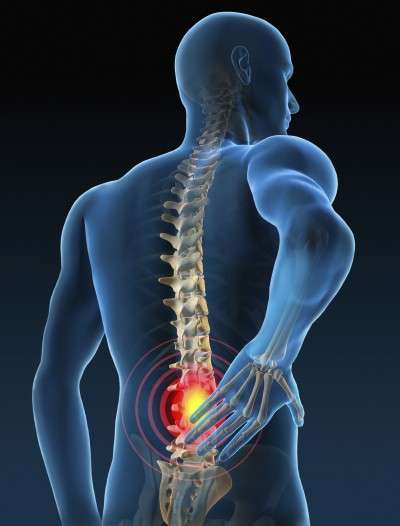It is estimated that four in five Australians will experience low back pain during their lifetime. Treatment options are limited, and low back pain remains the leading cause of disability worldwide.
Researchers from Monash University's Department of Epidemiology and Preventive Medicine in the School of Public Health and Preventive Medicine are conducting a clinical trial to determine whether antibiotics are an effective treatment for low back pain.
This work has developed from their systematic review, which shows evidence of bacteria in the spines of people with low back pain and a clinical trial conducted in Denmark which reported promising results for antibiotic treatment.
The trial is premised on the hypothesis that some cases of low back pain may be caused by an infection in the spine. It is thought that after an injury to a spinal disc bacteria circulating in the bloodstream enter the disc and establish an infection which prevents healing and leads to ongoing pain.
The clinical trial team, comprising Dr Donna Urquhart, Professor Flavia Cicuttini, Associate Professor Anita Wluka and Ms Molly Bond, is hopeful that the trial will provide valuable clinical data.
Dr Urquhart explained that low back pain is not just one condition, but that there are different types of low back pain. It is possible that one type of low back pain which results from infection may respond to antibiotic treatment.
"At present there is only preliminary evidence to suggest antibiotics might be effective so we need further research to understand whether they are beneficial for some cases of low back pain. While we hear that people are already trying antibiotic treatment for low back pain, it is too early for people to be requesting this treatment.
"It is also important for us to understand the effectiveness of antibiotics for low back pain given the problem of antibiotic resistance in the community" Dr Urquhart said.
More information: www.med.monash.edu.au/epidemio … lunteers-wanted.html
Provided by Monash University





















